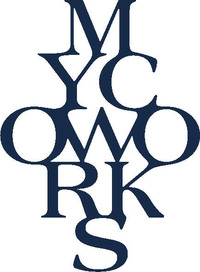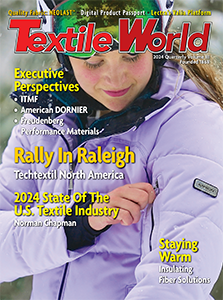 UNION, S.C. — January 8, 2024 — Biotechnology manufacturer MycoWorks has announced that its commercial-scale Fine Mycelium™ plant has successfully harvested over a thousand sheets of the company’s revolutionary luxury leather-alternative biomaterial, and has already achieved a level of product quality exceeding that of its California pilot plant. This has allowed the company to move to the next phase of its production ramp-up, loading over 10,000 trays to-date that will be harvested in the coming weeks. The company’s first revenue-generating shipments have left MycoWorks South Carolina several months ahead of schedule, soon to arrive to clients and partners who have pre-reserved nearly two years worth of Mycoworks South Carolina capacity. The sheets will first pass through the expert hands of MycoWorks’ partner tanneries across Europe, transforming Fine Mycelium into products including the company’s own flagship material Reishi™ — a fully grown, customizable, and low-carbon biomaterial with the strength, handfeel, and durability of the world’s finest natural leathers.
UNION, S.C. — January 8, 2024 — Biotechnology manufacturer MycoWorks has announced that its commercial-scale Fine Mycelium™ plant has successfully harvested over a thousand sheets of the company’s revolutionary luxury leather-alternative biomaterial, and has already achieved a level of product quality exceeding that of its California pilot plant. This has allowed the company to move to the next phase of its production ramp-up, loading over 10,000 trays to-date that will be harvested in the coming weeks. The company’s first revenue-generating shipments have left MycoWorks South Carolina several months ahead of schedule, soon to arrive to clients and partners who have pre-reserved nearly two years worth of Mycoworks South Carolina capacity. The sheets will first pass through the expert hands of MycoWorks’ partner tanneries across Europe, transforming Fine Mycelium into products including the company’s own flagship material Reishi™ — a fully grown, customizable, and low-carbon biomaterial with the strength, handfeel, and durability of the world’s finest natural leathers.
Improved sheet quality at scale
Fine Mycelium grown at MycoWorks South Carolina has already exceeded the quality standards of typical sheets grown at the company’s California pilot plant due to the implementation of years of quality and scale-up learnings from the pilot. Focused on attaining the highest performance and aesthetic qualities in Fine Mycelium, MycoWorks has developed a new savoir-faire–craft–for making mycelium materials, and has also now successfully scaled it up by adding key elements of automation: a first for biomaterials.
Three years of R&D at pilot plant paved way for quick scalability
After breaking ground on the facility in August of 2022, MycoWorks commenced operations at the South Carolina plant in September of 2022 and harvested its first sheets there in November. The company’s proprietary process is operating as expected with quality achieved ahead of schedule, proving the company’s proprietary tray-based process can be performed virtually anywhere.
Process automation has cut costs while raising sheet quality
MycoWorks developed entirely new systems and equipment for its unique tray-based biomaterials process to make Fine Mycelium, adapting existing automation equipment from the consumer goods, automotive, food, pharmaceutical and biotechnology industries. MycoWorks has been able to reduce the labor input by a factor of fourteen while raising quality standards, delivering Fine Mycelium expertly, effectively and efficiently to partners.
Key scale-up technologies already demonstrated
MycoWorks has already implemented several key cost-down and scale-up technologies at MycoWorks South Carolina, including the double-harvesting of sheets from trays and the elimination of an initial tanning step at the plant.
The Fine Mycelium process engineers mycelium during growth to form dense sheets of biomaterial in a uniquely scalable tray-based system. Until recently, only one sheet of Fine Mycelium could be harvested per tray; today, two sheets per tray are being harvested, increasing yield. MycoWorks will begin implementing this breakthrough in 100 percent of production by the end of 2024.
Furthermore, the company has developed the capacity to ship Fine Mycelium in untanned, “wet” form to tannery partners. Eliminating the costly initial tanning— i.e., stabilizing — process, and cutting the need for further chemistry through wet shipments, has both reduced cost and led to higher quality output at tanneries processing Fine Mycelium into Reishi™.
“In 2023, MycoWorks achieved multiple manufacturing milestones, most notably start of production of the world’s first commercial-scale mycelium biomaterial in South Carolina as well as the first harvests of high-quality sheets of Fine Mycelium using this facility’s new systems and process automation,” noted Doug Hardesty, MycoWorks COO. “Our teams redesigned and scaled up our one-of-a-kind tray based process to achieve low cost and high quality production all while delivering Fine Mycelium to the market ahead of schedule, only 17 months after breaking ground. MycoWorks South Carolina is a remarkable achievement, now delivering the quality from craftsmanship via a scalable tray.”
Supply-chain breakthrough for the luxury industry
The luxury sector has been eager to adopt MycoWorks’ Fine Mycelium technology into their materials supply chains for the product’s traceability from growth to tanning — and for brands, to final product. The unique printed code on each sheet allows for unprecedented monitoring and control as well as the ability to fine-tune sheets during their growth cycle for desired characteristics, tray-by-tray. Proprietary to MycoWorks’, this degree of both material tunability and provenance is unheard-of currently in the supply chain of natural materials.
Fine Mycelium is providing a new option of superior environmental standard to the materials sector
As reported in MycoWorks LCA of finished and tanned sheets, Reishi has a very low carbon footprint, between 2.7-5.8 kg/m2. Finished sheets are near-zero plastic and remain biodegradable. A less than 1%-by-weight finish, common to all leathers, can optionally be applied to the surface of sheets to protect from scratching and water damage. At present, no other material on the market possesses the rare combination of scalable, traceable, low-impact and quality performance characteristics that Fine Mycelium made products like Reishi can have. This uniquely positions MycoWorks’ technology to transform the supply chains for fashion and luxury, helping them to overcome natural leather shortages due to declining beef and dairy consumption while doing so with a high-quality natural material in-line with modern values. .
“MycoWorks South Carolina represents the future of design and manufacturing of soft-goods. The potential of our technology is not to replicate existing materials, but to leapfrog them — delivering an entirely new category of products to the market made from Fine Mycelium. Uniquely differentiated from leather, our first product, Reishi, represents an entirely new class of materials that is engineerable, controllable, durable and sustainable,” said MycoWorks CEO Matt Scullin. “At MycoWorks, we are designing materials for a new world, and a future where mycelium is the natural material of choice.”
Posted: January 8, 2024
Source: MycoWorks




